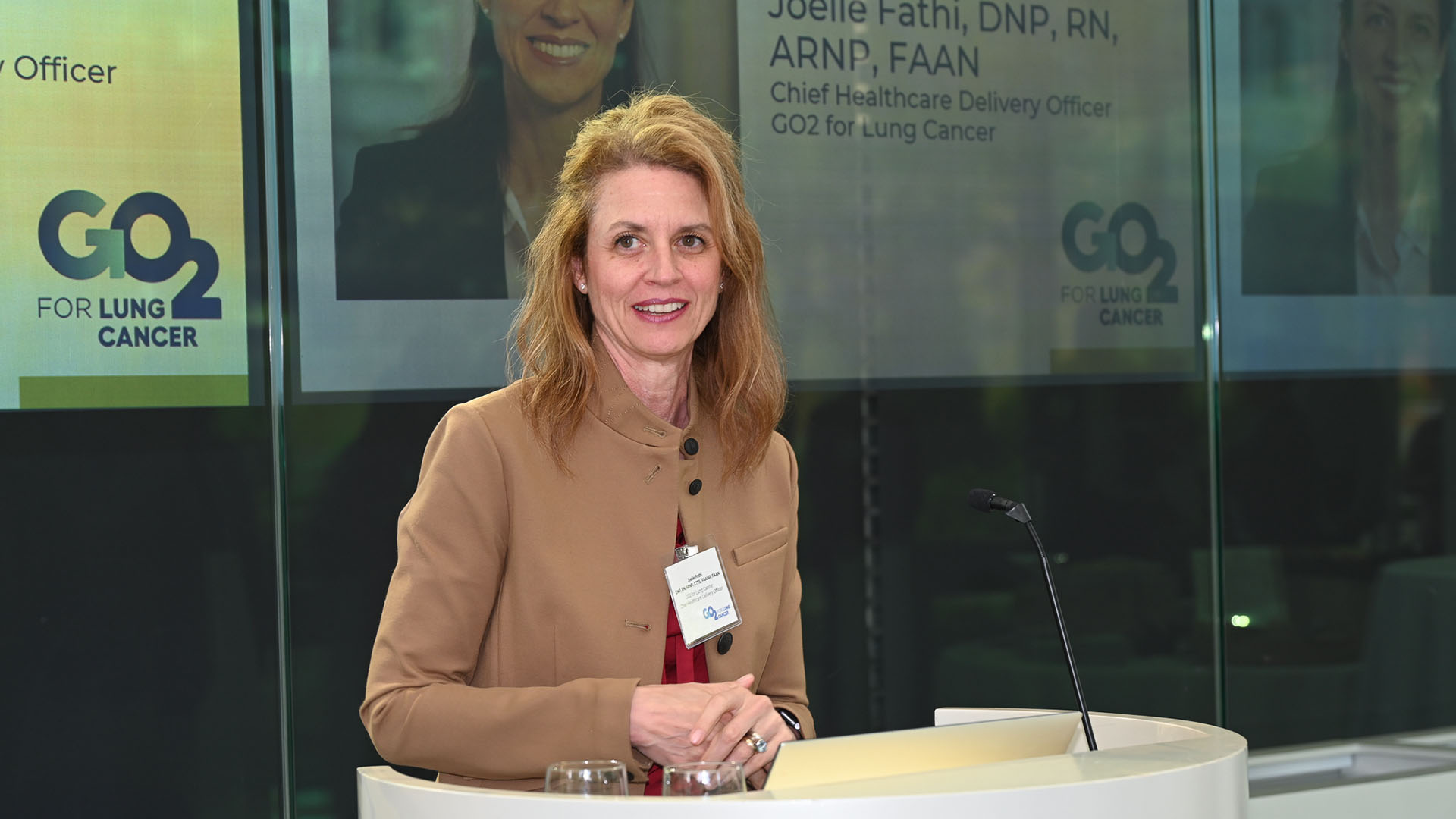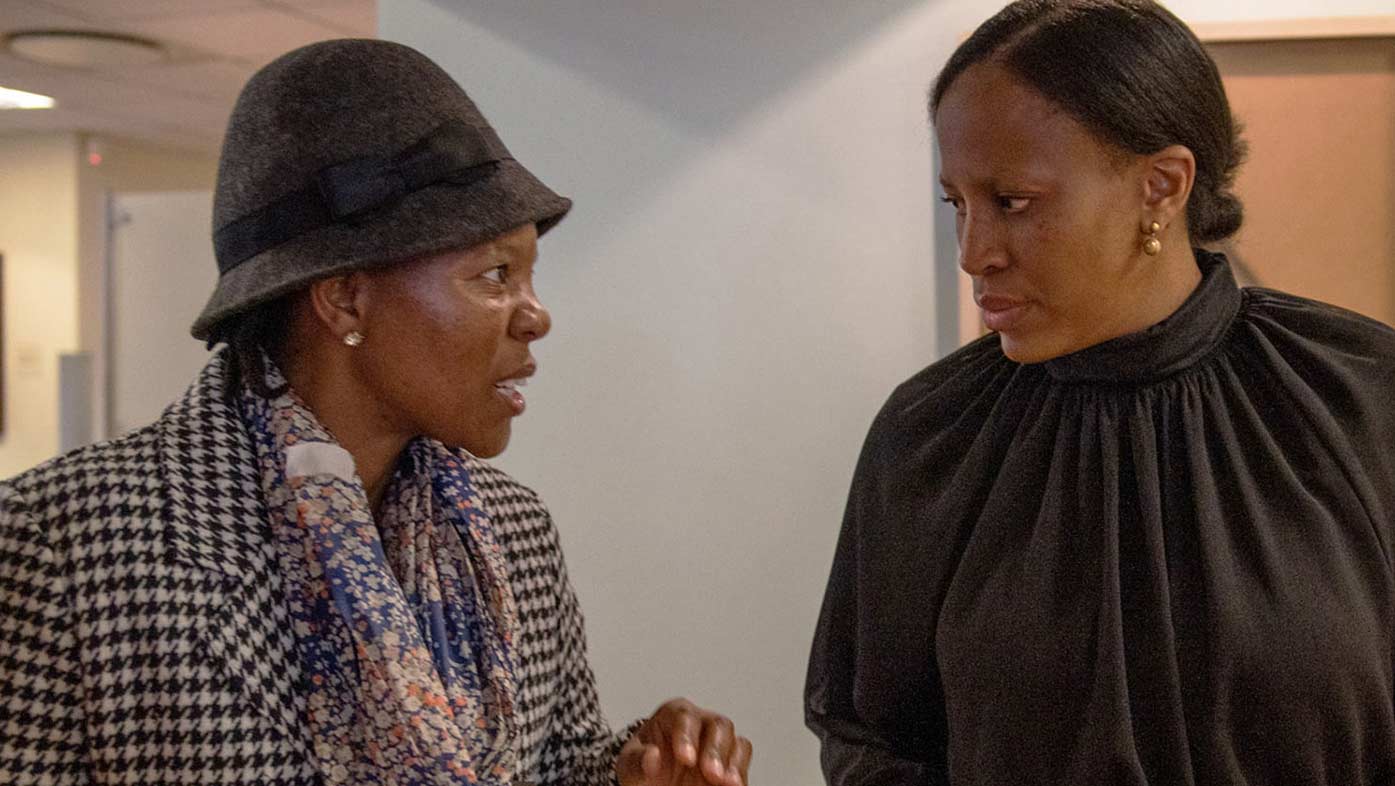One community at a time: Enabling early lung cancer detection across the U.S.
Every November, the U.S. commemorates Lung Cancer Awareness Month to educate Americans about the risks they face and the steps they can take to protect their health. This November brings renewed hope to the fight against lung cancer because the public health community has the tools they need to turn the tide – and they are already seeing the results in action.
Early detection through screening is key to improving lung cancer survivorship – when lung cancer is discovered early enough to be surgically removed before spreading, a patient's chance of surviving five years jumps from 4% to 55%. Yet, only a small minority of eligible patients are currently being screened.
The Bristol Myers Squibb Foundation (BMS Foundation), an independent charitable organization, is working to change that. Through an expanding network of innovative, community-based programs and research initiatives, the BMS Foundation aims to increase access to screening in underserved communities and better understand who may be at risk. Together, these efforts are designed to improve health outcomes and enable more patients to benefit from early detection.
"Early detection saves lives. But far too many Americans, especially people in underserved communities, face barriers to accessing lung cancer screening,” said Catharine Grimes, president of the BMS Foundation. “Through our capacity-building lung cancer screening grants, we are empowering local healthcare providers and researchers, improving health outcomes and bringing this life-saving modality to communities across the country.”
One example of the BMS Foundation’s current work builds on the remarkable success of Kentucky LEADS (Lung Cancer Education, Awareness, Detection and Survivorship). Launched in 2014 with a $7 million grant, this initiative helped Kentucky – once the state with the highest lung cancer mortality rate – achieve a 10% decline in late-stage diagnoses and rise to the second-highest lung cancer screening rate nationally.
With a new $6.8 million grant from the BMS Foundation, the same team of researchers at the University of Kentucky Markey Cancer Center and the University of Colorado Cancer Center are leading QUILS™ (Quality Implementation of Lung Cancer Screening) to bring similar results to Mississippi and Nevada – states chosen for their high lung cancer burden and low screening rates.
“Our experience in Kentucky has taught us that improving lung cancer screening rates requires a collaborative, quality-focused approach,” said Jennifer Redmond Knight, co-principal investigator of Kentucky LEADS Collaborative and an assistant professor in the UK College of Public Health. “This funding will allow us to apply what we’ve learned in Kentucky to help create targeted solutions for Mississippi and Nevada, potentially setting a new standard for lung cancer screening nationwide.”
Building on successful efforts to expand screening access in rural communities, the BMS Foundation is also addressing similar challenges in high-risk urban areas. In Los Angeles County, where screening rates hover at just 5-6%, they recently awarded a $2.5 million grant to UCLA Health to lead CAL-PALS (California Partnerships to Increase Access to Lung Cancer Screening). The program will expand access to lung cancer screening for medically underserved and low-income communities through collaborations with community hospitals.
"Unfortunately, many high-risk individuals face barriers to accessing lung cancer screening and our hope is that this initiative will demonstrate how a high-resource institution like UCLA can help community hospitals not only save more lives in the short term but also pave the way for lasting improvements in lung cancer outcomes across the region and entire state of California," said Dr. Drew Moghanaki, professor and chief of thoracic oncology in the Department of Radiation Oncology and principal investigator for the grant.
Beyond expanding access to screening, the BMS Foundation, in collaboration with the U.S. Department of Veterans Affairs, is supporting groundbreaking research to better understand who may be at risk for lung cancer and inform future guidelines. Led by Dr. Jennifer Lewis, an assistant professor at Vanderbilt University Medical Center’s Division of Hematology-Oncology, the MAS-EXPAND study will examine whether veterans aged 50 and older who have smoked at least 100 cigarettes and have additional risk factors, including military exposures, should be considered a high-risk population for lung cancer.
This comprehensive approach – from implementing proven screening programs to investigating screening criteria – demonstrates the BMS Foundation's commitment to advancing early detection for at-risk populations.
Through strategic partnerships and sustainable solutions, the BMS Foundation is helping to write a new chapter in the fight against lung cancer, one community at a time.
Subscribe to Our stories alerts
Beyond just relevant information about Bristol Myers Squibb's therapeutic areas and innovation, Our stories offer a window into the work our employees do every day for patients.
About Bristol Myers Squibb
Bristol Myers Squibb is a global biopharmaceutical company whose mission is to discover, develop and deliver innovative medicines that help patients prevail over serious diseases. As global citizens, we work sustainably and responsibly to create a positive impact in the communities where we live and work.



